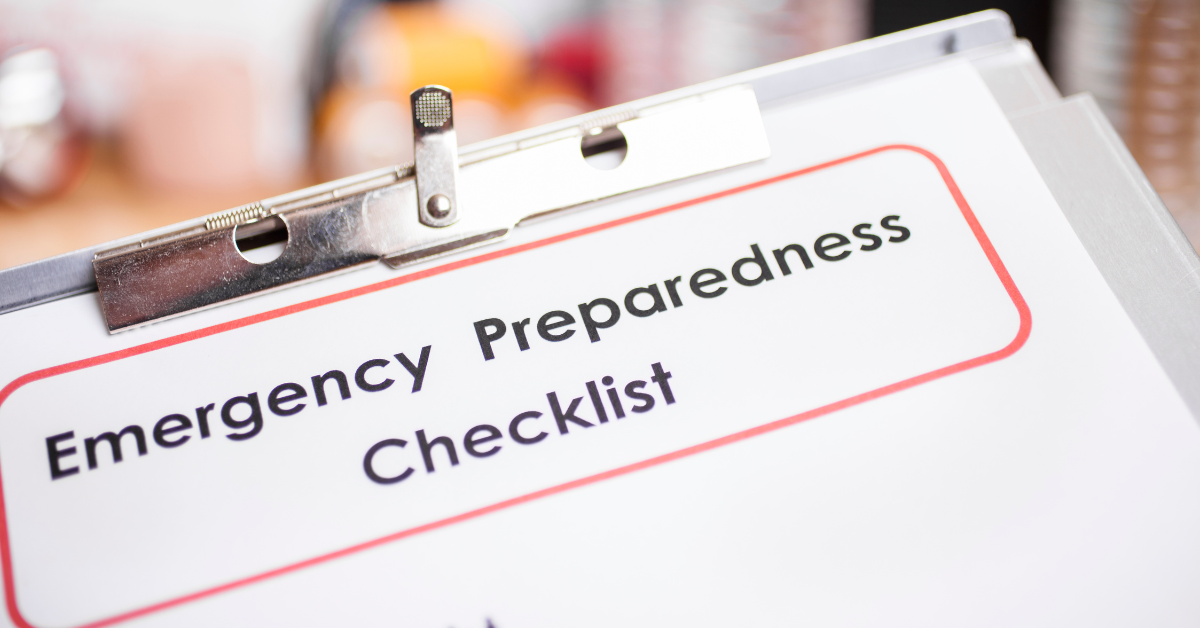Creating an Emergency Plan for Boston Rental Properties
Reading Time: 4 minutesCreating an emergency plan is a critical component of property management that safeguards both the physical property and the well-being of its occupants. For property owners and tenants in Boston, developing a robust emergency plan is not just a recommendation but a necessity. The city’s unique geographical location and historical weather patterns expose it to…

Creating an emergency plan is a critical component of property management that safeguards both the physical property and the well-being of its occupants. For property owners and tenants in Boston, developing a robust emergency plan is not just a recommendation but a necessity. The city’s unique geographical location and historical weather patterns expose it to various emergencies, including blizzards, severe power outages, floods, and urban fires.
Each of these situations poses distinct challenges and potential dangers. Preparing in advance can significantly mitigate the risks associated with these emergencies, reducing potential property damage, preventing injuries, and ensuring that both tenants and property owners are equipped to handle unexpected situations efficiently and safely.
Table of Contents
Building a Comprehensive Emergency Plan

Implementing a well-structured emergency plan helps protect your property investment, enhance tenant safety, and foster a prepared and resilient community. Below are key components of building a robust emergency plan:
Risk Assessment
Understanding the specific risks associated with a location and the type of building is the first step in crafting an effective emergency preparedness plan. In Boston, rental properties are particularly susceptible to winter storms that can lead to severe blizzards and prolonged power outages. Coastal properties might also face flood risks, while older buildings could be more vulnerable to fire.
Evaluating these risks involves not only recognizing them but also understanding the potential consequences such as property damage, injuries, and the displacement of tenants. This thorough risk assessment guides the subsequent steps in the emergency preparedness process.
Communication Plan
Clear and reliable communication is the backbone of any emergency response. Property owners or managers should establish and maintain open lines of communication with all tenants. This includes specifying preferred methods of contact such as phone, email, or text messaging, along with alternative solutions when conventional systems fail, such as battery-powered radios during power outages.
An efficient communication plan also entails the development of a protocol for disseminating timely updates and instructions during an emergency, ensuring all parties are informed and prepared to act swiftly.
Tenant Preparation
To further enhance emergency readiness, tenants should be provided with a comprehensive emergency preparedness guide. This guide should cover essential topics such as how to assemble an emergency kit, detailed evacuation procedures, and the safety features available within the building (e.g., fire escapes, emergency exits).
Property managers should organize regular fire drills and ensure that tenants are familiar with evacuation routes and procedures. Additionally, encouraging tenants to maintain their own emergency kits and to invest in renter’s insurance can further protect them against unforeseen losses and disruptions.
Property Owner Preparation
For property owners, preparation extends beyond communication and tenant guidance. Maintaining a current list of reliable contractors who can perform emergency repairs is crucial. These might include plumbers, electricians, and general contractors. It is also vital to regularly review the property insurance policy to ensure it provides adequate coverage for the types of emergencies that might occur, considering additional policies such as flood insurance if the location warrants it.
Property owners should also ensure that all safety devices, such as fire alarms, carbon monoxide detectors, and fire extinguishers, are in place and fully operational to comply with local safety regulations and to enhance overall safety. Additionally, investing in preventive measures like backup generators can provide an additional layer of security and convenience during disruptions to power supplies.
Additional Considerations When Planning for Emergencies

When planning for emergencies, it’s crucial to consider additional factors that ensure the inclusivity and effectiveness of your strategy. Addressing these elements is key to creating a comprehensive emergency plan that caters to the diverse needs of all occupants and facilitates a swift recovery process.
Accessibility
An effective emergency preparedness plan must be inclusive, ensuring accessibility for all tenants, including those with disabilities. This means taking proactive measures to accommodate everyone’s needs.
For instance, the emergency plan should be available in various formats such as large print, braille, and translated versions to cater to tenants who might not be fluent in English or who have visual impairments. Additionally, property owners should ensure that all emergency routes and facilities are accessible to tenants with physical disabilities, making necessary modifications to infrastructure as required by law and practical needs.
Pet Preparedness
For many tenants, pets are considered part of the family, and their safety is equally important during emergencies. The emergency plan should, therefore, include a section dedicated to pet care.
This includes information on pet-friendly shelters, tips for assembling a pet emergency kit, and procedures for evacuating pets safely. By incorporating these elements, property managers ensure that tenants do not have to make the difficult choice between their safety and the well-being of their pets.
Post-Emergency Response
Emergencies can leave behind significant damage, and a structured response is crucial for a swift return to normalcy. When creating an emergency plan, it should also outline a clear post-emergency protocol detailing the steps for property repairs and the continuation of tenant communication.
This includes assessing the damage, contracting repairs, and updating tenants about expected timelines for restoration. Ensuring tenants are kept informed reduces anxiety and promotes a sense of community and resilience among residents.
Conclusion
Creating an emergency plan is more than a precaution; it is an integral part of responsible property management. Such plans significantly enhance the safety and security of rental properties by mitigating risks, ensuring rapid and organized responses to emergencies, and providing clear guidance to tenants and property owners alike. The benefits of implementing and maintaining these plans extend beyond mere compliance with safety regulations, fostering a proactive community environment that values the well-being of every individual.
The importance of ongoing communication and regular updates to the emergency plan cannot be overstated. As conditions and regulations change, so too should the strategies to deal with potential emergencies. This dynamic approach ensures that property management remains equipped to handle challenges effectively as they arise.
For property owners and managers ready to take their emergency preparedness to the next level, Green Ocean Property Management offers tailored services and expert guidance. Aside from providing all-around property management, our team is dedicated to helping you develop and refine your emergency plans.
Contact us today to learn how we can assist you in crafting a comprehensive emergency response plan that suits your unique needs. Together, let’s build safer, more resilient communities.
Boston City’s Property Inspection – Explained
Reading Time: 3 minutes Every single rental property in Boston needs to be registered, even if you do it short-term rental. The process can either be done in person through paper and check or online. At Green Ocean, we decided to do it online because of the number of properties that we have. It’s nice if you have…
Heat and AC Zones Guide: Why Having Multiple Zones Benefit the Tenants
Reading Time: 2 minutesIn a rental property with multiple rooms, a zoned home is a must as different family members have different comfort levels. Here’s Green Ocean’s Heat and AC Zone Guide to familiarize yourself with the benefits of having multiple zones. What is a zone? A zone is a different section of the actual building that…
Why Maintaining Good Tenant Relationships is Essential for a Successful Rental Business
Reading Time: 4 minutesAs a landlord, maintaining good relationships with your tenants is essential for a successful rental business. Happy tenants are more likely to pay their rent on time, take better care of your property, and recommend you to others. In this blog, we’ll share why maintaining good tenant relationships is essential for a successful rental business….








